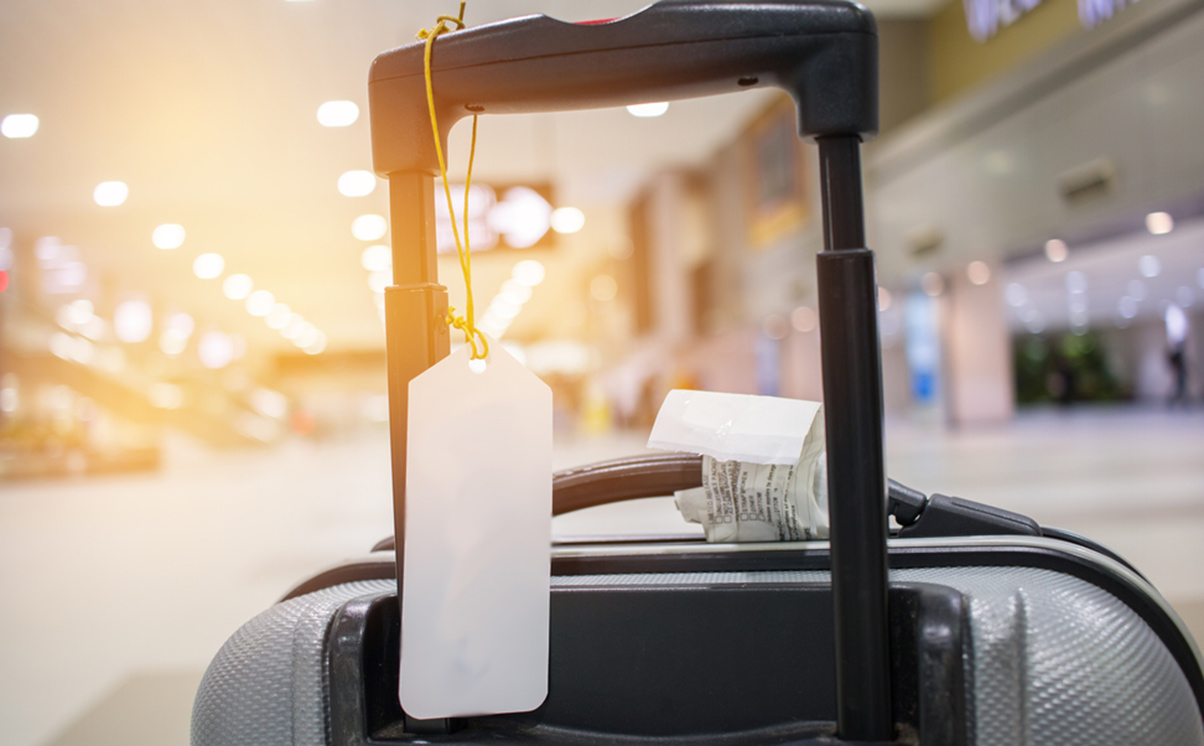Chris Deacon writes for PI Focus on why the public needs to be protected from any future potential tour operator collapses, through public liability insurance.
When Thomas Cook collapsed in September 2019, many holidaymakers who had sustained injuries while on a package holiday with the tour operator were surprised to learn that it did not have public liability insurance to cover their claims.
Thomas Cook largely self-insured its liability to pay compensation to customers. It only held liability insurance for cases of the utmost severity where the damages would run into several million pounds. This means that the vast majority of customers bringing a claim against Thomas Cook at the time of its collapse (or thereafter) will likely never receive full (if any) compensation. This includes financial losses those customers may endure on a lifelong basis as a result of a serious injury while on holiday.
Government recognition
The concerning nature of the situation for serious injury victims bringing claims against an uninsured tour operator was summarised in the statement of Andrea Leadsom, then-Secretary of State for Business, Energy and Industrial Strategy, to the House of Commons on 5 November 2019:
‘Thomas Cook took out insurance cover only for the very largest personal injury claims. For agreed claims below this figure, up to a high aggregate amount, the company decided to self-insure through a provision in its accounts.
‘As Thomas Cook has entered liquidation without ensuring any protection for pending claims, the vast majority of claimants who are not covered by the insurance, including customers who have suffered serious injuries and loss of life, will be treated as unsecured creditors. This means that it is uncertain whether they will receive any of the compensation they would ordinarily have received against their claims.
‘This raises a potentially unacceptable prospect for some Thomas Cook customers, who face significant financial hardship through no fault of their own, where Thomas Cook should rightly have provided support. They are customers who have already suffered life-changing injuries or illness, and who may face financial hardship as a result of a long-term loss of earnings or significant long-term care needs. This is an extraordinary situation that should never have arisen.’
Leadsom promised that the UK government would set up a statutory compensation scheme for the victims most seriously impacted by Thomas Cook’s insolvency. She said Thomas Cook’s approach was unacceptable, and made a commitment that the government would take steps to ensure it would not be repeated.
Although the government has failed to act on its commitment, the intent of creating a statutory compensation scheme for Thomas Cook’s customers is to be welcomed. However, it is questionable whether the UK taxpayer should be expected to pick up the tab where tour operators could and should obtain appropriate liability insurance to meet one of the key risks of their business operations when selling package holidays.
The self-insurance model is understood to be particularly popular among the larger tour operators, where passenger numbers would otherwise mean high public liability insurance premiums. The financial failure of the largest companies has the biggest impact on UK consumers and, ultimately, the UK taxpayer.
The only way to avoid a repeat of the extraordinary Thomas Cook situation is for the government to introduce legislation requiring travel agents and tour operators selling package holidays to have minimum public liability insurance of £10m.
This should cover their potential liability to seriously injured customers, those involved in a fatal accident or who experience illness while on a package holiday. There should also be a requirement that such policies do not carry prohibitive self- insured excess levels.
Consumer protection
The lack of compulsory liability insurance for tour operators is at odds with the protections offered to consumers through the Package Travel and Linked Travel Arrangements Regulations, which came into force in July 2018.
The 2018 Regulations updated the protections available to consumers booking package holidays by extending the definition of a package holiday to include dynamic, tailor-made packages and linked online bookings.
The 2018 Regulations widen the scope for a travel agent and tour operator being held liable to a consumer when things go wrong, including in claims for serious injury damages, and where the holiday falls within the expanded definition of a package.
In the recent Scottish case of O’Donnell v On The Beach [2020] SC EDIN 51, it was held that a well-known online travel agent had sold a package holiday, including flights, accommodation, and transfers for an inclusive price. It did not matter that On The Beach described itself as the booking agent. The contract was for a package holiday, and so On The Beach could be liable to Mrs. O’Donnell for the injury she sustained while at the hotel she had booked as part of the package. This case fell under the previous 1992 Package Travel Regulations, but it shows the heavy emphasis on consumer protection in both sets of Regulations.
Holidaymakers are induced to book holidays where they see the ABTA and ATOL logos, which many travel agents and tour operators prominently display on their marketing and advertising. In reality, while the ABTA Code of Conduct requires its members to have liability insurance in place, no enquiries are made about the level of coverage or the self-insured excess that might apply. Companies operating in the same way as Thomas Cook would appear to be able to confirm to ABTA that insurance is in place, without revealing that it only covers a small percentage of the claims for injury damages made by customers each year.
There is no requirement for a tour operator to have third-party/customer liability insurance to obtain an ATOL from the Civil Aviation Authority (CAA). This is because the ATOL scheme ensures customers are repatriated or receive a refund if the travel company goes bust while they are on holiday or before they travel. The ATOL scheme does not guarantee that a customer who is seriously injured while on holiday will receive compensation if an uninsured package holiday provider becomes insolvent.
The position for tour operators is in stark contrast to airlines, who must have liability insurance in place to be licensed by the CAA.
The protections afforded to consumers by the Package Travel Regulations are illusory if the tour operator runs into financial difficulty and is under- insured or completely uninsured for its liability in a claim for serious injury.
Alternative options
If the tour operator becomes insolvent, serious injury or fatal accident victims could look to the local supplier of services (such as the local hotel, transport or excursion provider) to bring a claim for damages. In some circumstances, the consumer may have a direct right of action against the supplier’s liability insurer.
For holiday accidents occurring in the EU, Brexit makes it harder for serious injury victims to claim directly against the supplier of the relevant services in the UK courts. In addition, under-insurance is often a worrying feature in overseas jurisdictions where policies can have arbitrary limits for personal injury claims. This is, however, a route that victims should explore if the tour operator is insolvent.
If the UK accedes to the Lugano Convention, this will further enhance consumer protection by reopening the possibility of direct action against the local supplier and / or the supplier’s liability insurer in the UK courts.
Where possible, consumers should try to pay for bookings using a credit card. Under section 75 of the Consumer Credit Act 1974, the credit card company is jointly and severally liable for any breach of contract or misrepresentation by the retailer or trader. Section 75 protection applies where the booking is over £100 and less than £30,000, so should capture most package holidays. There are limitations on who can bring a claim under section 75, including on the ability of a named passenger on a booking to bring a claim for damages when they are not the main cardholder. Section 75 claims can also take a long time for credit card companies to process. This is particularly the case now, as they are dealing with a huge backlog of claims arising from the Covid-19 pandemic and requests for refunds for cancelled travel arrangements that have not been repaid directly by retailers.
The possibility that consumers may be able to bring a claim directly against the local supplier of services under the package or rely on section 75 protection is no replacement for tour operators having minimum levels of public liability insurance in place.
Call for action
In normal times, the lack of a mandatory insurance requirement for tour operators to meet serious injury and fatal accident claims arising during a package holiday would be worrying. The combined effect of Covid-19 and Brexit is such that further insolvencies in the travel industry are inevitable.
It is arguably reckless to allow this situation to persist.
In early 2020, the National Audit Office warned that the UK taxpayer may be required to step in once again if there was another large-scale tour operator failure along the lines of Thomas Cook. This is because the ATOL Air Travel Trust Fund was left depleted after paying out £481m due to Thomas Cook’s failure and the UK government indicated it would guarantee payments if the ATOL fund is unable to make them. There is already pressure from within the travel industry to reform the ATOL scheme.
Separately, other organisations, including APIL, have called for compulsory minimum liability insurance to protect the victims of serious injury.
While travel bans remain in place across the globe at the time of writing, travel and tourism can expect a significant boost from the pent-up demand of holidaymakers when the pandemic passes.
In the meantime, there is an opportunity for action, reform and legislation. Tour operators should be legally required to have a minimum level of liability insurance in place to cover claims made by customers who are seriously injured or impacted by a fatal accident on a package holiday.
Compulsory insurance will build and maintain consumer confidence in the package travel industry when it is most needed. It would shift the burden of financial failure from consumers and taxpayers to tour operators and the insurance market, and ensure consumers have an effective means of redress if the worst comes to pass.
Covid-19 is impacting individuals and companies around the world in an unprecedented way. We have collected insights here to help you navigate the key legal issues you may be facing at this time.
You can find further information regarding our expertise, experience and team on our International Injury page.
If you require assistance from our team, please contact us or alternatively request a call back from one of our lawyers by submitting this form.
Subscribe – In order to receive our news straight to your inbox, subscribe here. Our newsletters are sent no more than once a month.








